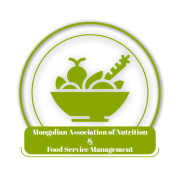

Author(s): John Owusu, Ebenezer Nartey, Dhailly Araba Arkorful*, Agnes Amissah, Emmanuel Gamor
Sobolo is a popular locally produced beverage in Ghana. However, there is limited work done on its physicochemical and microbiological qualities. This study was therefore conducted to determine the physicochemical properties and microbiological quality of sobolo on and around the Koforidua Technical University (KTU) campus. Samples were taken from six Sobolo vending points and their pH, Titratable Acidity (TA), Total Soluble Solids (TSS) and Moisture Content (MC) determined. Standard plating methods were used to assess the microbiological quality of the beverage. The results indicate that the pH of Sobolo ranged from 3.85 ± 0.07 to 6.37 ± 0.18, TA from 0.028 ± 0.001 to 0.075 ± 0.001 g/mL, TSS from 2.00 ± 0.00 to 15.44 ± 0.00°Brix and MC from 83.60 ± 0.30 to (96.9 ± 0.10)%. The total viable count ranged from 1.20 × 104 to 9.70 × 104 CFU/mL, fungi levels ranged from 0.00 × 104 to 2.70 × 104 CFU/ mL, Shigella levels were in the range 0.00 × 104 to 1.01 × 104 CFU/mL and the Escherichia coli levels were also in the range from 0.00 × 104 to 9.80 × 103 CFU/mL. Samples from all vending points studied had total viable count below the permissible levels. However, the presence of E. coli in Sobolo obtained from two of the Sobolo vending points is an indication that those samples have been contaminated with faecal matter and are unsafe for human consumption. The Sobolo vendors within and outside KTU should therefore be trained on how to handle the beverage to prevent contamination.